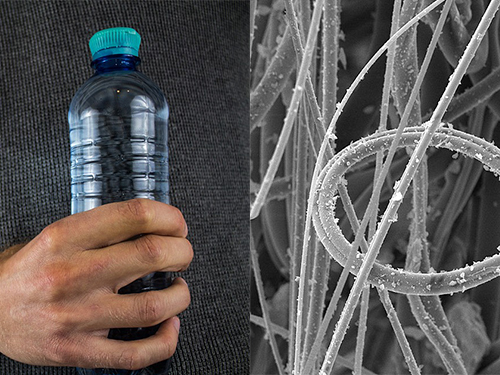
To End Plastic Pollution and to recognize World Water Day, let’s take a look at how microplastic pollution gets into our drinking water supply. Here are some facts for you to consider:
PLASTIC POLLUTION FACT: Microplastics (extremely small pieces of plastic) are present in almost all water systems in the world—streams, rivers, lakes, and oceans.
PLASTIC POLLUTION FACT: 83% of the samples of tap water tested from major metropolitan areas around the world were contaminated with plastic fibers. In another study, 93% of water samples from major bottled water suppliers from around the world showed signs of microplastic contamination, including polypropylene, nylon, and polyethylene terephthalate (PET).
The ways microplastics enter our water supply are surprising. Microplastics emanate from clothing, cosmetics, car tires, and paint chips, among other sources. They’re also created from all plastic items as they erode into smaller and smaller pieces.
You might think that water purification systems run by cities and companies remove these microplastics, but you would be wrong. Plastic fibers are so tiny that they seem to be able to pass through the filtering systems used to purify the water from streams or rivers that goes into our homes and water bottles. They are also small enough to be easily transported by the wind.
Since we seem to be drinking water contaminated with microplastics, what impact does this have on our health? We know that plastics contain chemicals added during the manufacturing process and that plastics absorb other toxins from the water. We know that those chemicals, when consumed by humans, have been associated with some health issues.
You’ll be surprised to learn the ways plastic in drinking water can potentially harm the people who drink it!
Would like to learn more and do something to help prevent this problem from getting worse?
Help End Plastic Pollution! Get involved to protect your own health; visit our website!
We have resources to help individuals, organizations and educators like you learn more about the issue and organize your friends, family, and community to End Plastic Pollution.

No comments:
Post a Comment